If you’re wondering what intrusive fantasy is—apart from sounding like something very rude and impatient—you’re not alone. In Rhetorics of Fantasy, Farah Mendlesohn argues there are four categories of fantasy, one of which is “intrusive.” (The others, in case you’re interested, are portal, immersive, and liminal.) If a portal fantasy is one in which the protagonist and the reader travel from the ordinary world into a magical one (Alice in Wonderland and The Lion, the Witch, and the Wardrobe are classic examples), then an intrusive fantasy is the reverse. In intrusive fantasy, magic comes from an Elsewhere into the ordinary world, changing it and the protagonist forever.
When I wrote the Enchantée series, I knew I wanted to create a secret magical society within the tumultuous world of revolutionary Paris. The stories’ protagonist, orphaned Camille, has grown up unaware of the existence of magicians beyond the transformative magic she works from her own sorrow. But the more she struggles to keep her small family afloat, the more risks she takes, until she’s entangled herself in a web of magic, magicians, and a dark magical history that was always there, but which she never knew existed. It feels a lot, I think, like growing up.
Here are five of my favorite books featuring intrusive fantasy.
The Historian by Elizabeth Kostova
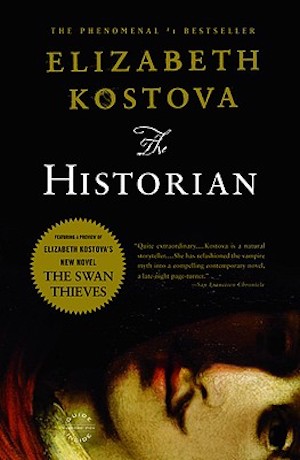
In both The Historian, and its urtext, Dracula, the fantastical—in the form of vampires—enters our quietly human, familiar world. But where Dracula begins as a portal fantasy (Jonathan Harker travels to Transylvania to finalize a real estate deal that will bring Dracula to England), The Historian is pure intrusive fantasy. Told through multiple narrators investigating unsettling events and historical accounts of the infamous Vlad Tepes, The Historian into a story about infection and the way fear can taint what we know. This is one of the powers of intrusive fantasy: that it can make us doubt what’s real as we sense, in the next library carrell or across the piazza, that some thing is watching. It can make us doubt ourselves.
Daughter of Smoke and Bone by Laini Taylor
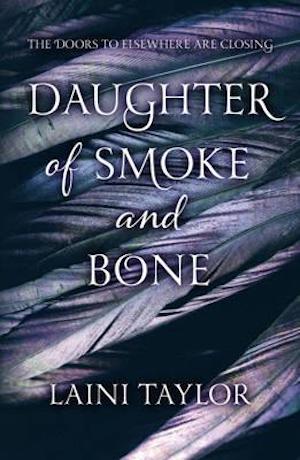
In this gorgeously written and inventive fantasy, Taylor weaves together elements of both portal and intrusive fantasy. The protagonist, Karou, is familiar with portals; through a door in a shop, she’s sent on errands all over the world to collect teeth for a creature named Brimstone, but she doesn’t know what he needs them for. She’s haunted by a sense that something is missing; that there is a piece of herself she can’t access. But all that changes when doorways throughout Prague are marked with burning handprints, locking out certain creatures and letting other dangerous ones in. Eventually Karou travels even through doorways of memory, but it’s the arrival of unfamiliar magic in her world that sets her on a quest for self-understanding.
The Raven Boys by Maggie Stiefvater
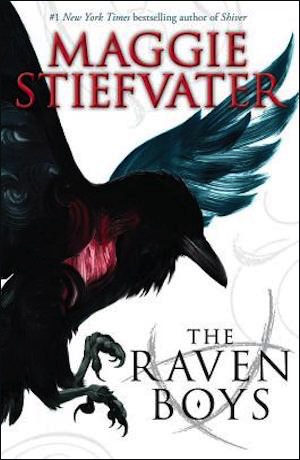
In a book full of magical quests and treasure, a sleeping king and ley lines that hum with power, the protagonist is a somewhat ordinary girl named Blue. Born into a family of clairvoyants, Blue is not magical but merely, as she says, a source of energy for her relations who tell fortunes at the kitchen table. But one night, when Blue is assisting her aunt, magic steps into her world in the shape of a boy’s ghostly warning. By bringing mythology, folktale, and strange dreams into small-town Henrietta, Virginia, Stiefvater enlarges Blue’s world while at the same time making it feel as if magic has always been there, just out of sight.
The Night Circus by Erin Morgenstern
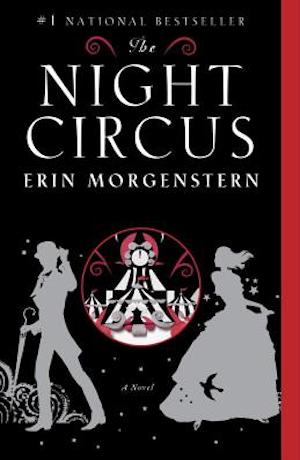
“The circus arrives without warning,” begins The Night Circus. “No announcements precede it. It is simply there, when yesterday it was not.” I love the opening of this book, in part because it captures for me an essential quality of intrusive, fairy tale magic: one day everything is as it was, and the next day something unexpected has happened to change it forever. There are several magicians in this book and Morgenstern moves between their stories and those of complete outsiders to the circus. This separation lets us experience the story’s magic, both beautiful and cruel, from the inside and at the same time to long for it when we stand outside the circus gates. It’s apt that the circus aficionados call themselves “rêveurs” or dreamers, as dreaming itself is an intrusive magic.
Jonathan Strange & Mr Norrell by Susanna Clarke
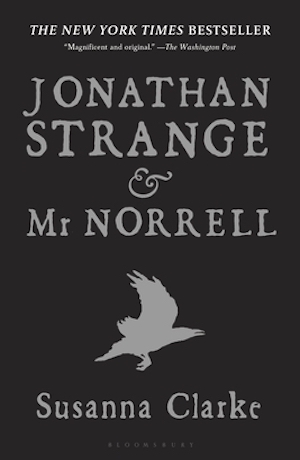
Jonathan Strange and Mr. Norrell, which reads like a perfect mashup of Dickens and Austen, hinges on fantasy’s creep into the Regency England’s everyday world. In it, a “magician” is a historian of magic, magic itself having not been practiced in England in a very long time. Yet that is about to change as magic intrudes upon the story. It happens through the surprising revelation that there are at least two “practical” magicians in England who can work magic. It happens through one of those magician’s ill-advised workings, which summons sinister fairies into British society. Magic also seeps into the story through the book’s footnotes. In them, an alternate history of a magical England invades the page’s margins, stealing attention from the main plot, and insisting, I think, that dividing worlds into “real” and “magical” is a most dangerous illusion.
Buy the Book
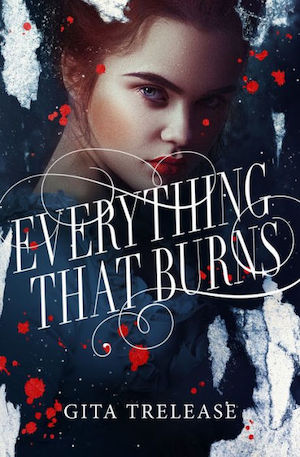

Everything That Burns
Gita Trelease is the author of All That Glitters (released in the UK as Enchantée), a YA fantasy set on the eve of the French Revolution, and the sequel Everything That Burns. Born in Sweden to Indian and Swedish parents, Gita has lived in New York, Paris, and a tiny town in Italy. She attended Yale College and New York University, where she earned a Ph.D. in British literature. Before writing novels, she taught classes on monsters and fairy tales. With her family, Gita divides her time between a village in Massachusetts and the coast of Maine, where she searches for a secret portal to take her back to Versailles.










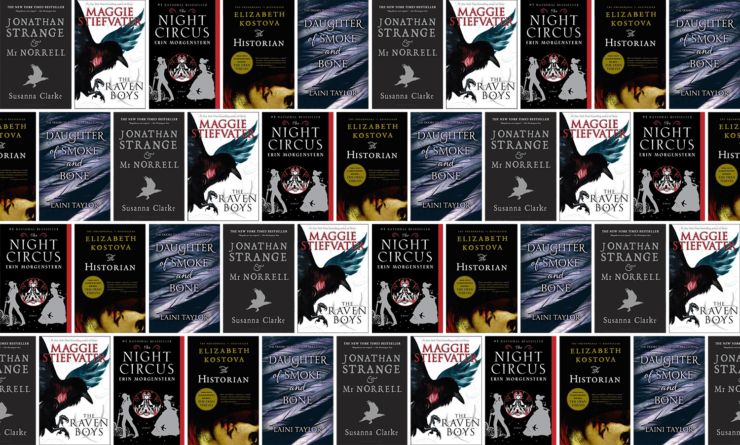
When I read the opening paragraphs on this essay, my first thought was of Clarke’s novel! I remember reading it, and oh boy did I love all the academic footnotes!! and thinking “did I somehow forget about the history of magic in England from when I was in school?”
I literally just finished The Night Circus. By gods, what a fabulous book. Congratulations to Ms. Morgenstern!
The “Surprise, the supernatural is real” is a major element in the worldbuilding or the first book in many urban fantasies. My personal favorite is Kim Harrison’s “The Hollows” series where genetically modified tomatoes wiped out a good portion of the human population, and the supernaturals revealed themselves to save civilization. Curse you, pizza!
It’s rare that I get to check off even a single book from these lists but this one somehow I’ve read half. The Historian and The Night Circus are amazing. I know a lot of people love Jonathan Strange and Mr Norrell but I only got half way through it, I found the footnotes distracting because I’ll hit a note and then go read it and by the time I’m finished with the footnote I’ll have forgotten what was going on in the main text.
Loved the Historian and Children of Smoke and Bone (alas, the best of the trilogy). The Night Circus has long been on my to read list. Haven’t heard of The Raven Boys and I couldn’t get past the second chapter of the Clarke. And I love novels with footnotes.
Sean Stewart has a few books set in a continuity where the world is being overcome by the unnatural disaster that is an influx of magic – Resurrection Man is set during the period where it’s still happening, and Galveston after society has been almost completely overwhelmed.
Two of my favourite modern books of all time: Jonathan Strange and Night Circus. Both similar and yet oh so different. I love the writing in each, the mystical realism incorporated, and the idea that our world could have magic without it feeling childish and silly.
I really need to read Daughter of Smoke and Bone; but I’ll confess I’m a bit afraid as it’s had a lot of hype over the years…
I’m surprised at people’s reaction to Strange and Norrell. It’s one of the most absorbing books I’ve read in the last 20 years. Footnotes are a traditional item in SF and fantasy. You could almost read a lot of Jack Vance and Terry Pratchett for the footnotes alone.
The classification system is interesting. The first example I could think of of a series that doesn’t fit is Steph Swainston’s Fourlands stories. They combine portal, intrusive, and immersive.
I might add that the Anita Blake series that begins with GUILTY PLEASURES seems to be an intrusive type, though we all have opinions on the direction the series took.
I bounced off Jonathan Strange and Mr. Norrell also. I enjoy footnotes, but somehow the story didn’t engage me. I don’t quite know what it was. Maybe it didn’t seem magical enough? (Maybe I didn’t read far enough?)